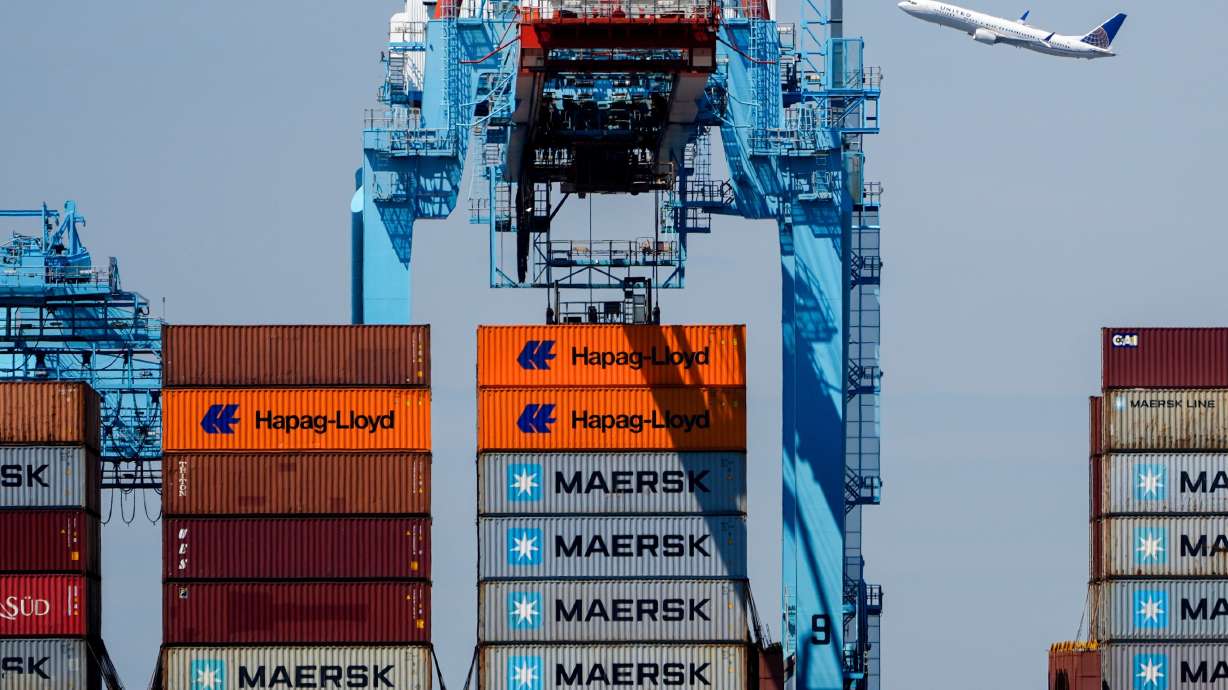Estimated read time: 4-5 minutes
- Sen. Mike Lee is cautious about President Donald Trump's tariff strategy, fearing trade wars.
- Lee supports using tariffs for leverage but warns of potential negative outcomes.
- Trump's tariff policies aim to renegotiate trade deals, but risks remain, Lee says.
SALT LAKE CITY — Utah Sen. Mike Lee said he is hopeful the White House's big gamble will pay off.
In an interview with the Deseret News, Lee said President Donald Trump's tariff negotiations with some of the country's biggest economic allies could produce a freer trade environment for the United States.
But, Lee said, that outcome is not guaranteed.
"It's certainly not without risk," he said.
While Lee believes the administration aims to use tariffs as leverage to increase U.S. access to foreign markets, raising tariffs to their highest levels in at least 80 years has the potential to do the opposite, he said.
"Bottom line for me is, I'm very leery of trade wars," Lee said. "If you see an escalation of trade barriers, tariff and non-tariff alike, at the end of this, that would be very unfortunate."
Trump's upheaval of global markets with his "Liberation Day" announcement on April 2 was originally framed as a way to upset the international status quo that he said "ripped off" American workers.
A week later, Trump placed a 90-day hold on the policy in a stated effort to craft trade deals with dozens of countries that had run to Washington seeking to navigate America's new protectionist approach.
Foreign nations come to the table
Over the past several days, Trump administration officials have begun formal talks with the European Union, which faced a 20% reciprocal tariff; Japan, which faced a 24% tariff; South Korea, which faced a 25% tariff; and India, which faced a 26% tariff.
"Since our announcement of LIBERATION DAY, many World Leaders and Business Executives have come to me asking for relief from Tariffs," Trump said in a Truth Social post on Sunday. "They must right the wrongs of decades of abuse, but it won't be easy for them."
Few details have emerged about what concessions trade allies will have to make to avoid reciprocal tariffs and stick with just the baseline 10% worldwide tariff.
On Friday, Reuters reported that Japan will consider increasing how much soybeans and rice they import from the U.S. and decreasing their regulatory roadblocks to U.S. automobiles and other agricultural products.
On Sunday, Trump posted a list of non-tariff barriers he would like to see countries remove. They include manipulating the value of currencies, subsidizing products to undermine U.S. competition and committing intellectual property theft.
Will negotiations benefit the U.S. economy?
For Lee, the success of the Trump administration's tariff experiment comes down to whether it results in more free trade, not less.
"I'm not a believer in trade protectionism. I don't think that's good," Lee said. "But insofar as this process is used to bring people to the table, and insofar as it could culminate in the fast-tracked negotiation of a series of bilateral trade agreements, then I think we have the potential to be well served by this."
Nations around the world use government interference, like tariffs and regulations, to limit trade with other countries and support domestic industries. To the extent that these bureaucratic obstacles are removed, the U.S. will see a boost to its job market and GDP, according to Lee.
However, the messaging coming out of Trump's Cabinet on tariff policy has been mixed.
White House trade adviser Peter Navarro has advocated for tariffs to be permanent and free of exemptions in order to reshape American supply chains, rebuild manufacturing capacity and raise revenue over the long term.
"This is not a negotiation," Navarro told Fox News. "This is a national emergency based on a trade deficit that's gotten out of control because of cheating."
Meanwhile, Treasury Secretary Scott Bessent suggested on NBC News that tariffs have "created maximum leverage" to bring more than 50 countries to the negotiating table with the administration.
In recent days, Lee said he heard Trump suggest that the administration is in the process of using the threat of tariffs to negotiate trade agreements that benefit the U.S.
"I hope that's where we're headed with the Trump administration," Lee said. "I think in a trade war there are no winners. Everyone has the potential to end up being worse off if this escalates into a trade war type of a situation."
Since Trump entered office, Canada — America's No. 2 trading partner and top consumer — has announced a retaliatory 25% tariff on a wide range of U.S. goods.
China — America's No. 3 trading partner — has also raised its tariffs on all imports from the U.S. to 125% after Trump announced duties of 145% on most Chinese goods.
Lee, who has long been outspoken about the need to adjust the U.S.-EU defense relationship, said he would also like to see trade negotiations lead European nations to increase their defense spending instead of relying on America's security umbrella.
U.S. foreign military aid has enabled European countries to devote more resources to their welfare states and has "made Europe's march toward socialism that much more affordable," Lee said.
"It's a really good deal for European nations. It's less of a good deal for the American people who end up footing a lot of the bill for that," Lee said.









